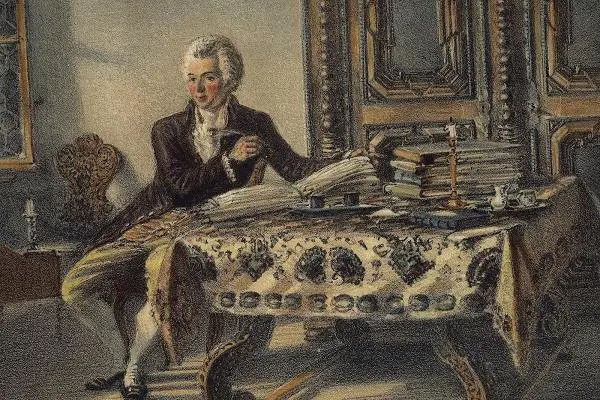

| Online: | |
| Visits: | |
| Stories: |

| Story Views | |
| Now: | |
| Last Hour: | |
| Last 24 Hours: | |
| Total: | |
Discover The Daily Creative Flow That Lead To The Success Of Nikola Tesla, Mozart, Van Gogh And Maya Angelou
 by Jess Murray | Truth Theory
by Jess Murray | Truth Theory
Success cannot be defined by a simple statement, and nor can it be taught in a simple guidebook. The world contains a vast array of success stories, both past and present, each very different but each also with their own path to follow in order to allow them to get to their pivotal stage of success.
Even when two people discover success they are entirely unique in their own ways. For example, Picasso and Van Gogh are both artistic geniuses, but each followed very different routines to reach their masterpieces. It has been said that “the path to greatness is paved with tiny consistent rituals”. So below is a list of the self-described daily routines of some of the most creative minds in history.

Nikola Tesla
Nikola Tesla was a Serbian-American inventor, electrical engineer, mechanical engineer, physicist, and futurist. He was best known for his contributions to the futuristic design of the alternating current (AC) electricity supply system. He said, “It is paradoxical, yet true, to say, that the more we know, the more ignorant we become in the absolute sense, for it is only through enlightenment that we become conscious of our limitations. Precisely one of the most gratifying results of intellectual evolution is the continuous opening up of new and greater prospects.”
He described how he works in his autobiography:
“My method is different. I do not rush into actual work. When I get an idea I start at once building it up in my imagination. I change the construction, make improvements and operate the device in my mind. It is absolutely immaterial to me whether I run my turbine in thought or test it in my shop. I even note if it is out of balance. There is no difference whatever, the results are the same. In this way I am able to rapidly develop and perfect a conception without touching anything.
When I have gone so far as to embody in the invention every possible improvement I can think of and see no fault anywhere, I put into concrete form this final product of my brain. Invariably my device works as I conceived that it should, and the experiment comes out exactly as I planned it. In twenty years there has not been a single exception.
Why should it be otherwise? Engineering, electrical and mechanical, is positive in results. There is scarcely a subject that cannot be mathematically treated and the effects calculated or the results determined beforehand from the available theoretical and practical data. The carrying out into practice of a crude idea as is being generally done is, I hold, nothing but a waste of energy, money and time.”

Wolfgang Amadeus Mozart
Wolfgang Amadeus Mozart was an Austrian composer who created a string of operas, concertos, symphonies and sonatas that went on to shape classical music. Throughout his life he composed more than 600 works, and he is among the enduringly popular of classical composers, whilst being profound on subsequent Western art music.
He said, “When I am … completely myself, entirely alone … or during the night when I cannot sleep, it is on such occasions that my ideas flow best and most abundantly.”
In 1782 he wrote a letter to his sister where he outlines an intense routine that left him with only five hours sleep each night:
“At six o’clock in the morning I have my hair dressed, and have finished my toilet by seven o’clock. I write till nine. From nine to one I give lessons. I then dine, unless I am invited out, when dinner is usually at two o’clock, sometimes at three, as it was to-day, and will be to-morrow at Countess Zichi’s and Countess Thun’s. I cannot begin to work before five or six o’clock in the evening, and I am often prevented doing so by some concert; otherwise I write till nine o’clock. I then go to my dear Constanze, though our pleasure in meeting is frequently embittered by the unkind speeches of her mother, which I will explain to my father in my next letter.
Thence comes my wish to liberate and rescue her as soon as possible. At half-past ten or eleven I go home, but this depends on the mother’s humor, or on my patience in bearing it. Owing to the number of concerts, and also the uncertainty whether I may not be summoned to one place or another, I cannot rely on my evening writing, so it is my custom (especially when I come home early) to write for a time before going to bed. I often sit up writing till one, and rise again at six.”
![]()
![]()
![]()
![]()
![]()
![]() Philosophers stone – selected views from the boat http://philosophers-stone.co.uk
Philosophers stone – selected views from the boat http://philosophers-stone.co.uk
Source: http://www.phoenixisrisen.co.uk/?p=12939


